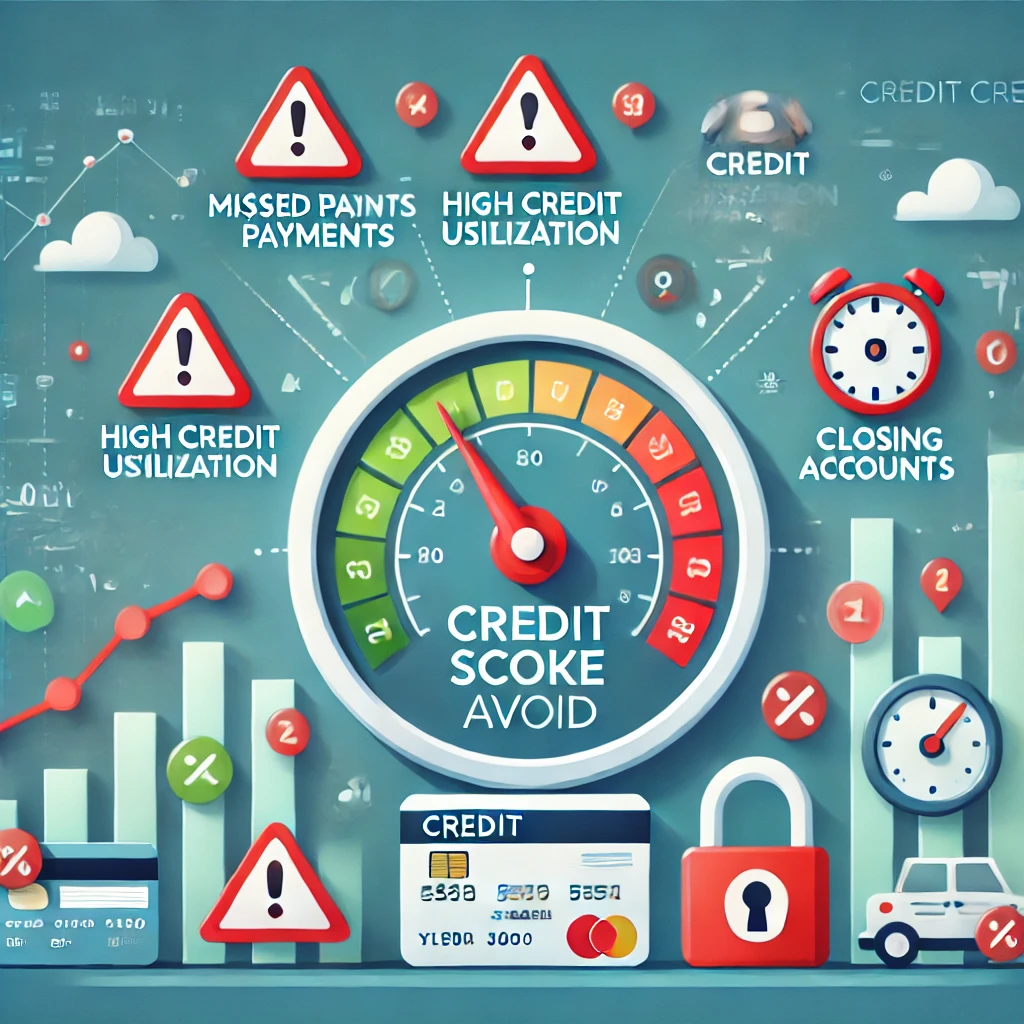Credit can be tricky. It’s easy to feel overwhelmed by all the “rules,” especially when small mistakes can have lasting effects on your score. But here’s the thing: understanding what can hurt your credit score isn’t as complicated as it seems. I’ve learned that avoiding just a few common missteps can make a big difference. So, let’s break it down together, one step at a time.

Let’s dive into the top five mistakes to avoid when managing your credit and how you can stay on track.
- Miss a credit card payment. Credit card providers want to know that you are a trustworthy customer that can manage credit well. Therefore, missing a credit card payment will negatively impact your credit score. To make things worse, you’ll also see two charges: a late fee and interest on the balance.
- Go over 30% utilization. By using too much of your available credit, lenders could see this as a sign that you may be overextended financially. If you have a $1,000 monthly credit limit, we recommend only spending $300 on your credit card per month.
- Close oldest account. The age of your oldest credit account shows lenders how much experience you have handling credit, so make sure to dust off your first credit card and use it a few times per year. Never close it!
- Open too many accounts in a short period of time. Lenders might wonder if you’re overextended financially if you start to open many accounts in a short period of time.
- Be afraid to check credit score. Reputable sites that offer free credit scores conduct what is called a soft credit check, which does not negatively affect your credit score. We recommend checking your credit score routinely!
Protect Your Credit, Protect Your Future
Your credit score plays a major role in shaping your financial opportunities, from securing loans to getting lower interest rates. Avoid common credit mistakes—like missing payments or maxing out your credit limit—to stay in control of your financial future. Building good credit takes time, but by staying consistent and mindful of your habits, you’ll see progress. So, stay proactive by regularly checking your score, and keep working toward your financial goals!
Pingback: Why Credit Card Balances Are Costing You More - Dyneri